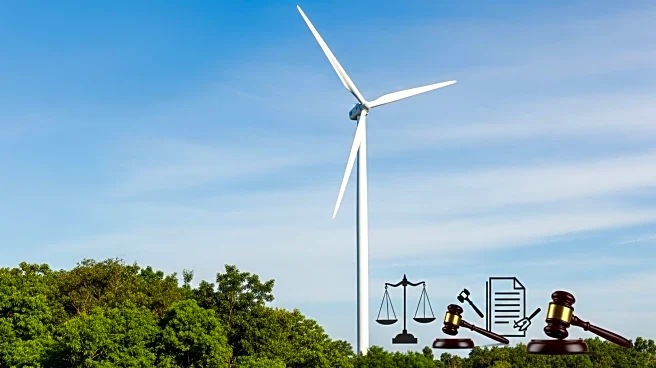What's Happening?
Rhode Island, Connecticut, and Orsted A/S have filed lawsuits against the Trump administration to challenge the halt of an offshore wind farm project. The project, backed by Orsted and Global Infrastructure Partners, was nearing completion when it was blocked by recent government orders. These orders reflect President Trump's opposition to wind power, threatening significant investments and job creation in the renewable energy sector. The legal action represents a major confrontation over the administration's energy policies and their impact on state-level initiatives.
Why It's Important?
The lawsuit underscores the tension between federal energy policies and state efforts to promote renewable energy. The halt of the wind farm project could have significant economic implications, potentially affecting billions of dollars in investments and hundreds of jobs. It also highlights the broader conflict over the future of energy in the U.S., as states increasingly pursue sustainable solutions in contrast to federal policies favoring traditional energy sources. The outcome of this legal battle could set a precedent for how renewable energy projects are managed and supported at the federal level.
What's Next?
The legal proceedings will likely involve complex arguments about federal authority and state rights in energy policy. The outcome could influence future projects and investments in renewable energy across the U.S. Stakeholders, including environmental groups, industry leaders, and policymakers, will be closely monitoring the case. Depending on the court's decision, there may be shifts in how renewable energy projects are approached, potentially impacting the pace and scale of the transition to sustainable energy sources.
Beyond the Headlines
The case raises questions about the balance between economic development and environmental sustainability. It also reflects broader societal debates about the role of government in supporting or hindering progress in renewable energy. The legal challenge could prompt discussions about the ethical and practical implications of energy policy decisions, particularly in the context of climate change and environmental responsibility.










